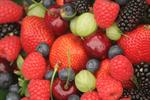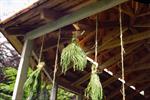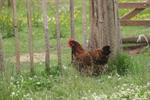 You Can Be More Self Sufficient
You Can Be More Self Sufficient
- Significant amounts of food can be grown in even the smallest garden
- Significant amounts of money can be saved by making things rather than buying them
- You can start up and run a small business from home, growing or making things; or selling your "knowledge" to help others.
There are more opportunities than ever in today's world; to change the way you live and earn.
With the changing global climate, food is becoming more expensive and the quality is not dropping. Those who adopt the principles of self-sufficiency empower themselves to provide their own food.
This course will teach you how to become self-sufficient, grow food in the right season so it is at its peak nutritionally, provide your own meat and egg sources as well as creating a healthy environment for you and your family or share your expertise with others. This course also offers you the flexibility of studying from home around your current commitments, so that you can enjoy your study without feeling the pressure of having to subsidise your income while studying.
“This is a certificate level course that provides the skills to earn extra income as a consultant in this field. Be self-sufficient and earn money too.” - Adriana Fraser Cert.Hort., Cert.Child Care, Adv.Cert.App.Mgt., Cert IV Assessment and Training, Adv.Dip.Hort., ACS Tutor.

This is a unique qualification which may be undertaken with a view to preparing for a change in the way you live or perhaps in preparation for establishing a business or career providing services to the community in this discipline.
The course develops skills in producing your own day to day products using low cost, environmental friendly practices.
The Certificate covers (but is not limited to):
- mud brick building,
- growing fruit and vegetables, herbs and other crops organically,
- raising poultry, sheep and goats,
- nutrition and creating a balanced diet,
- alternative energy supplies,
- permaculture, and sustainable agriculture
- alternative energy.
What Do You Need to Study to become Self Sufficient?
A short course of 100 hours, can set you on the right path, and give you enough of a foundation to be able to move toward 30,40 or even 50% self sufficiency; particularly if you are prepared to make compromises and live without some of the luxuries of the modern world.
It becomes a lot more complicated tough if you want to reach higher levels of self sufficiency; because you need to do more things and make more compromises to a modern lifestyle.
As you increase your level of self sufficiency, you need to increase your level of learning, your level of skill, your level of compromise and your level of initial investment (both in time and money).
 The more you study, the more you learn, and the fewer mistakes you are likely to make.
The more you study, the more you learn, and the fewer mistakes you are likely to make.
There are no strict rules that will tell you, you need to do this course to live this way. Everyone learns in different ways and at different speeds; and everyone has different desires and needs. The bottom line though is that "the more you study, the more prepared you will be to plan and implement a higher level of self-sufficiency"
SAMPLE ASSIGNMENT FROM SELF-SUFFICIENCY I
1. Describe, in a few lines, your concept of self-sufficiency.
2. If you had to live on a lower income – how would you go about achieving this?
3. Make a detailed list of all the goods and services you get from modern society such as, doctors, chemist (medicines), cleaning aids, meat, vegetables, cereals, clothing, and electric heating.
4. Go through the list in question 3 and note the goods/services that you could supply for yourself. Note those that you could do without and note those which you would still have to rely (to some extent) on others to supply.
5. What skills would you like to acquire in order to further reduce your reliance on outside goods and services? List these in order of priority. Next to each briefly state how you would go about acquiring these skills.
SAMPLE NOTES FROM SELF-SUFFICIENCY I
Sustaining good health requires proper food, appropriate clothing and a variety of health services.
We can depend on others for these things in a variety of ways, some with ease, some however are less easy.
Things you might do:
- grow your own food
- process or cook your own food (even if you don’t grow it, you might buy fresh product and process it)
- learn basic medical techniques (A first aid course or Health and fitness course can be useful)
- make your own clothing
The best way to become more self-sufficient with regards to health services is to maintain better health, so you don’t need those services so much.
If you eat properly, exercise regularly, and avoid things that negatively impact upon your health (eg. exposure to UV light, smoking, stress, excessive alcohol use, etc); your need for health services can diminish greatly.
Added to this, knowledge of home remedies can assist with many common problems. There will however always be a point at which professional medical attention may still be required, and it can be very dangerous to compromise for the sake of self-sufficiency when it comes to serious medical problems.
Food is essential in order to survive. It is perhaps one of the most important considerations in trying to become self-sufficient. It should be possible for any family to become relatively self-sufficient for food on as little as 1/4 acre (0.1 ha) of land. You cannot do this by simply growing anything which you might be able to eat though. It is essential that you plan the food you produce, both to ensure a steady and regular supply of the right types of foods.
WHAT NEXT?
Register to Study - Go to “It’s Easy to Enrol” box at the top of the page and you can enrol now.
or
Get Advice – Email us at info@acsedu.co.uk OR
Use our FREE COUNSELLING SERVICE to contact a tutor
CLICK TO CONTACT US